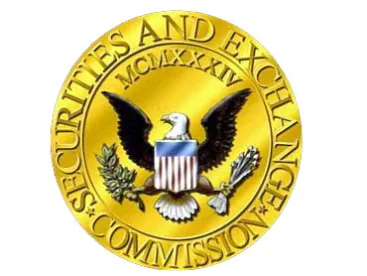The Fiduciary Rule: Mistaken Beliefs (#4)
This is my 79th article about interesting observations concerning the Department of Labor’s (DOL) fiduciary rule and exemptions. These articles also cover the DOL’s FAQs interpreting the regulation and exemptions and related developments in the securities laws.
This post continues my series on myths about the fiduciary rule and prohibited transaction exemptions. This article focuses on the issue of “reasonable compensation” for RIAs, broker-dealers and their advisors for their services to retirement plans and IRAs (“qualified accounts”), and what, if any, changes will be made to that requirement. The myth is that the SEC will draft rules that eliminate the reasonable compensation rule. That is incorrect. The reasonable compensation limitation on advisors and their supervisory entities is here to stay.
This article explains why the reasonable compensation limits are here to stay and what advisors and their supervisory entities need to do to comply with those rules.
The fiduciary regulation is currently in effect. It first applied on June 9, 2017. And, it applied in full force. That is, while there are transition versions of the prohibited transaction exemptions, the fiduciary regulation was not modified to be a transition version.
The effect of the fiduciary regulation is to broadly expand the definition of who is a fiduciary. Because of the regulation, virtually anyone who makes an investment or insurance recommendation to a plan, a participant, or an IRA owner, is a fiduciary.
The conflict of interest exceptions (called “exemptions”), on the other hand, only partially applied on June 9th. The most important exemption—the Best Interest Contract Exemption, or BICE—requires only that advisors and their supervisory entities adhere to the Impartial Conduct Standards. Those standards are:
- The best interest standard of care, which is, in its essence, the prudent person rule and the duty of loyalty.
- No materially misleading statements.
- No more than reasonable compensation for the individual advisor and the entity.
However, even if the reasonable compensation condition in BICE is removed from the exemption, that will not mean that advisers and their supervisory entities can ignore that limit. And, even if the SEC or FINRA do not impose a reasonable compensation limitation, that will not change the rule. Why is that?
The reasonable compensation limit is found in both the Internal Revenue Code and ERISA. In other words, it is a statutory requirement. Neither the DOL, the SEC nor FINRA can issue a rule that overrides a statute.
But, what if the definition of fiduciary is changed and an advisor is no longer a fiduciary? That doesn’t matter either. The reasonable compensation limitation in the Code and ERISA applies to all service providers, regardless of whether they are fiduciaries.
With that background, the essential question is, how do advisors and their financial institutions determine the reasonableness of their fees? Before I answer that question, though, I want to explain two threshold issues. The first is the definition of compensation and the second is the definition of reasonableness.
ERISA and the Code use “compensation” to cover all payments, monetary and non-monetary, that are compensatory. A compensatory payment is one which is partially or entirely, directly or indirectly, attributable to an investment or insurance recommendation. The DOL uses a “but for” test to determine if a payment is compensation, that is, would the broker-dealer or RIA firm have received the payment “but for” the investment recommendations. If the payment is partially or entirely, directly or indirectly, attributable to investment recommendations, it is compensatory.
With regard to “reasonableness,” the DOL explains that the reasonableness of compensation is determined by the services provided by the advisor. In effect, the marketplace defines “reasonable” because, in most cases, the ordinary and customary compensation for the services associated with particular transactions is reasonable.
More specifically, the DOL explained in its preamble to BICE:
The reasonableness of the fees depends on the particular facts and circumstances at the time of the recommendation. Several factors inform whether compensation is reasonable including, inter alia, the market pricing of service(s) provided and the underlying asset(s), the scope of monitoring, and the complexity of the product. No single factor is dispositive in determining whether compensation is reasonable; the essential question is whether the charges are reasonable in relation to what the investor receives.
Now, let’s turn to the steps that advisors and their supervisory entities should take to determine whether the compensation for a particular type of investment transaction is reasonable. Financial institutions and advisors need to obtain information about the marketplace pricing for various types of transactions. For example, what is the range of customary compensation for individual variable annuities? What is customary for referrals to third party asset managers? What is customary for mutual funds? And so on.
While it may be possible for financial institutions to collect that information on their own (and to update it periodically . . . perhaps annually), the more practical and cost-effective answer is to work with a benchmarking service that obtains and updates that information. Of course, advisors and financial institutions should investigate the experience and quality of the benchmarking service, and the integrity and timeliness of its data.
Keep in mind that the reasonable compensation limits are in the prohibited transaction rules. As a result, the burden of proof is on the financial institution, and not on the retirement investor. In other words, it’s important to have market data and to develop compensation policies that are consistent with the data. Since it is likely that the levels of reasonable compensation will change over time, that information should be updated at reasonable intervals.
The views expressed in this article are the views of Fred Reish, and do not necessarily reflect the views of Drinker Biddle & Reath.
Part 1- Interesting Angles on DOL’s Fiduciary Rule #1
Part 2 - Best Interest Standard of Care: Interesting Angles on the DOL’s Fiduciary Rule #2
Part 3 - Hidden Preamble Observations: Interesting Angles on the DOL’s Fiduciary Rule #3
Part 4 - TV Stock Tips and Fiduciary Advice: Interesting Angles on DOL’s Fiduciary #4
Part 5 - Level Fee Fiduciary Exemption: Interesting Angles on DOL’s Fiduciary Rule #5
Part 6 - Fiduciary Regulation And The Exemptions: Interesting Angles on the DOL’s Fiduciary Rule #6
Part 7 - Fiduciary Regulations And The Exemptions : Interesting Angles on the DOL’s Fiduciary Rule #7
Part 8 - Designated Investment Alternatives: Interesting Angles on the DOL’s Fiduciary Rule #8
Part 9 - Best Interest Standard and the Prudent Man Rule: Interesting Angles on the DOL’s Fiduciary Rule #9
Part 10 - FINRA Regulatory Notice: Interesting Angles on the DOL’s Fiduciary Rule #10
Part 11-ERISA and the Internal Revenue Code: Interesting Angles on the DOL’s Fiduciary Rule #11
Part 12- Potential Prohibited Transactions: Interesting Angles on the DOL’s Fiduciary Rule #12
Part 13-Investment Policies: Interesting Angles on the DOL’s Fiduciary Rule #13
Part 14- Investment Suggestions: Interesting Angles on the DOL’s Fiduciary Rule #14
Part 15- Best Interest Contract Exemption: Interesting Angles on the DOL’s Fiduciary Rule #15
Part 16 - Adviser Recommendations: Interesting Angles on DOL’s Fiduciary Rule #16
Part 17 - Level Fee Fiduciary: Interesting Angles on DOL’s Fiduciary Rule #17
Part 19- Interesting Angles on the DOL’s Fiduciary Rule #19: Advisors' Use of "Hire Me" Practices.
Part 20- Three Parts of "Best Interest Standard of Care": Interesting Angles on the DOL’s Fiduciary Rule #20
Part 22-Banks and Prohibited Transactions: Interesting Angles on the DOL’s Fiduciary Rule #22
Part 24 - Differential Compensation Based on Neutral Factors: Interesting Angles on DOL’s Fiduciary Rule #24
Part 25-Reasonable Compensation Versus Neutral Factors: Interesting Angles on the DOL’s Fiduciary Rule #25
Part 27 - Definition of Compensation: Interesting Angles on DOL’s Fiduciary Rule #27
Part 28 - What About Rollovers that Aren’t Recommended?: Interesting Angles on the DOL’s Fiduciary Rule #28
Part 29- Capturing Rollovers: What Information is Needed?: Interesting Angles on the DOL’s Fiduciary Rule #29
Part 31 - “Un-levelizing” Level Fee Fiduciaries: Interesting Angles on the DOL’s Fiduciary Rule #31
Part 33- Discretionary Management, Rollovers and BICE: Interesting Angles on the DOL’s Fiduciary Rule #33
Part 34- Seminar Can Be Fiduciary Act: Interesting Angles on DOL’s Fiduciary Rule #34
Part 35- Presidential Memorandum on Fiduciary Rule: Interesting Angles on the DOL’s Fiduciary Rule #35
Part 36 -Retirement Advice and the SEC: Interesting Angles on the DOL’s Fiduciary Rule #36
Part 37 - SEC Retirement-Targeted Examinations: Interesting Angles on the DOL’s Fiduciary Rule #37
Part 42 - Rollovers under DOL’s Final Rule: Interesting Angles on DOL’s Fiduciary Rule #42
Part 43 - BICE Transition: More Than the Eye Can See - Interesting Angles on DOL’s Fiduciary Rule #43
Part 44 - Basic Structure of Fiduciary Package (June 9): Interesting Angles on DOL’s Fiduciary Rule #44
Part 47- “Real” Requirements of Fiduciary Rule: Interesting Angles on DOL’s Fiduciary Rule #47
Part 49- The Requirement to Disclose Fiduciary Status: Interesting Angles on the DOL’s Fiduciary Rule #49
Part 50- Fourth Impartial Conduct Standard: Interesting Angles on DOL’s Fiduciary Rule #50
Part 51- Recommendations to Transfer IRAs: Interesting Angles on the DOL’s Fiduciary Rule #51
Part 54 - The DOL’s RFI and Possible changes to BICE: Interesting Angles on the DOL’s Fiduciary Rule #54
Part 55- DOL’s RFI and Recommendation of Annuities- Interesting Angles on DOL’s Fiduciary Rule #55
Part 58- Recommendations to Contribute to a Plan or IRA- Interesting Angles on the DOL’s Fiduciary Rule #58
Part 60- What the Tibble Decision Means to Advisers: Interesting Angles on the DOL’s Fiduciary Rule #60
Part 61- The Fiduciary Rule, Distributions and Rollovers: Interesting Angles on the DOL’s Fiduciary Rule #61
Part 65- Unexpected Consequences of Fiduciary Rule - Interesting Angles on the DOL’s Fiduciary Rule #65
Part 66- Concerns About 408(b)(2) Disclosures: Interesting Angles on the DOL’s Fiduciary Rule #66
Part 67- From the DOL to the SEC - Interesting Angles on the DOL’s Fiduciary Rule #67
Part 68-Recommendations of Distributions - Interesting Angles on the DOL’s Fiduciary Rule #68
Part 69- Compensation Risks for Broker-Dealers and RIAs: Interesting Angles on the DOL’s Fiduciary Rule #69
Part 70-The Fiduciary Rule and Recordkeeper Services: Interesting Angles on the DOL’s Fiduciary Rule #70
Part 71- Recordkeepers and Financial Wellness Programs: Interesting Angles on the DOL’s Fiduciary Rule #71
Part 72-The "Wholesaler" Exception: Interesting Angles on the DOL’s Fiduciary Rule #72
Part 74 -One More Fiduciary Issue for Recordkeepers: Interesting Angles on the DOL’s Fiduciary Rule #74
Part 75 - The Fiduciary Rule: Mistaken Beliefs-Interesting Angles on the DOL’s Fiduciary Rule #75
Part 77 - The Fiduciary Rule: Mistaken Beliefs (#2): Interesting Angles on the DOL’s Fiduciary Rule #77
Part 78 - The Fiduciary Rule: Mistaken Beliefs (#3): Interesting Angles on the DOL’s Fiduciary Rule #78
Part 80 - Enforceable During Transition?: Interesting Angles on the DOL’s Fiduciary Rule #80
Part 83 - Part 2 of Undisclosed (and Disclosed) 12b-1 Fees: Interesting Angles on the DOL’s Fiduciary Rule #83
Part 85 -The Fiduciary Rule: What’s Next (Part 1)? : Interesting Angles on the DOL’s Fiduciary Rule #85
Part 86- The Fiduciary Rule: What’s Next (Part 2)?: Interesting Angles on the DOL’s Fiduciary Rule #86
Part 87 - The Fiduciary Rule: What’s Next (Part 3)?: Interesting Angles on the DOL’s Fiduciary Rule #87
Part 88 -The Fiduciary Rule: What’s Next (Part 4)? : Interesting Angles on the DOL’s Fiduciary Rule #88




 />i
/>i

